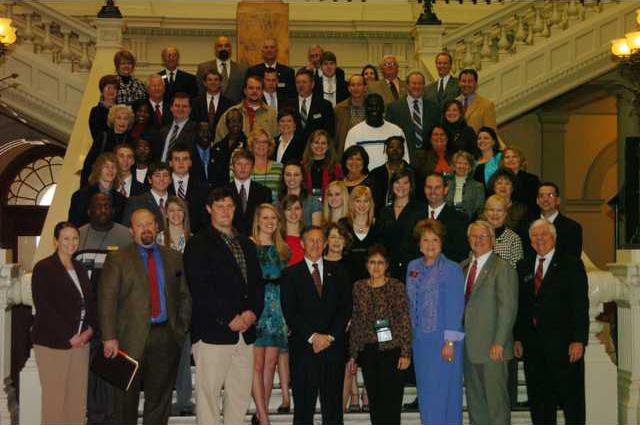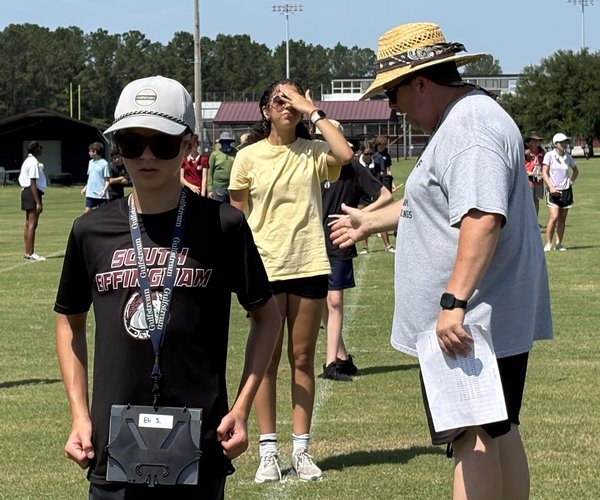ATLANTA — In the midst of the dire news of budget constraints emanating from the Capitol, there is some good news on the horizon, state Sen. Jack Hill said.
Hill, the chairman of the Senate Appropriations Committee, said Gov. Sonny Perdue’s recent bond package proposal included a major dose of funding for highways — including the Last Mile project for the Savannah port.
The Last Mile will connect Jimmy DeLoach Parkway to the port and is expected to alleviate much of the truck traffic of Highway 21.
“That has great implications for us because of the traffic it will take off Highway 21,” Hill said. “That is a tremendous achievement.”
And the Last Mile could become even more important, he said, once the Panama Canal is widened in 2014. With the capability to handle larger ships, it could mean the volume of truck traffic from the port will triple.
State Rep. Jon Burns urged local leaders to work with the ports and support the Last Mile project.
“As we look at transportation, the key is regionalism,” he said.
Gov. Perdue scaled down the bond package, which normally runs about $1 billion, to $900 million for this fiscal year. But one-third of it will be dedicated to highways, with a focus on freight traffic.
The money in the bond package is important, Hill noted, because of the continued decrease in excise and sales taxes on gasoline. Those two revenue sources fund the Department of Transportation. A few years ago, they brought in more than $1 billion. Excise taxes are levied on the amount of gasoline sold — and the less gasoline consumed, the less they bring in. Sales taxes are dependent upon the price of gas, and that price has fluctuated.
But Hill warned that the money outlined in the bond package isn’t a guaranteed sum.
“We’re going to have to fight hard to keep it,” he said.
Effingham County officials met with Todd Long, the state transportation planner. Long, a Hinesville native, was appointed to his position by Gov. Perdue last year. Officials called their meeting with Long productive.
“We didn’t walk away with a check,” county commission Chairman Dusty Zeigler said. “But we scored some points.”
Zeigler said he believes they created a rapport for Long, who commended the group on their collective bargaining.
“He emphatically said it was vital we all come together and consolidate our efforts and be consistent in our message,” Zeigler said. “It goes a long way. We get their attention more and we get better response when we do those things.”
Burns, a former member of the state transportation board, lauded the selection of Long to the post.
“He knows our concerns,” he said. “He knows the problems, and he’s open to working with us. We’re very fortunate Gov. Perdue appointed him to that position.”
Long and Hill both commended the countywide transportation advisory committee. The committee is made up of the mayors of all three Effingham municipalities, Zeigler, representatives from the Effingham Board of Education and the Industrial Development Authority and two private citizens.
Lawmakers likely will adopt a plan for regional sales tax proceeds to fund local road projects. Such a move would have to go before the voters for their approval.
Under the plan, counties will be grouped together and would agree upon local road projects to be funded under the tax.
“I believe something will pass,” Hill said.
But the plans are still sketchy, lawmakers and officials cautioned.
“It’s an issue that doesn’t have a lot of framework to it,” Zeigler said. “But it’s going to get a lot of debate here. Frankly, it might be one of the only solutions we have.”
Should that measure pass or other funding sources become available, Effingham needs to have its plans ready to put into action.
“We’ll have to be ready when things turn around when there is money available,” Zeigler said.
Even with the shakeups in the leadership of Georgia’s Department of Transportation and its funding woes, Hill sounded an optimistic tone.
“The greatest crying need in the state is transportation. For all the problems we have in transportation,” he said, “things are starting to look up.”





